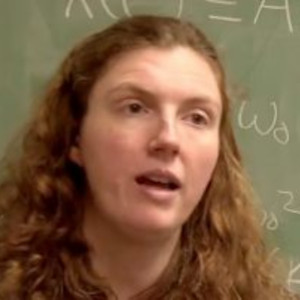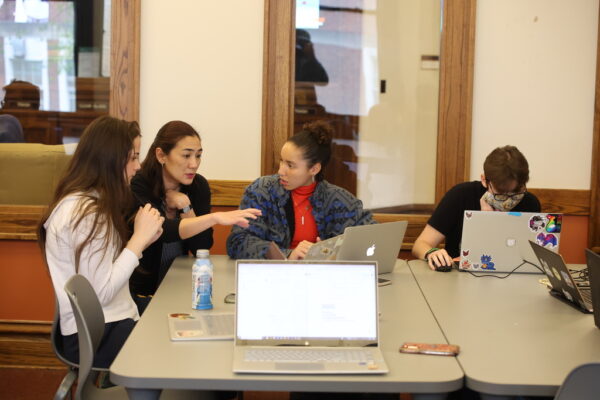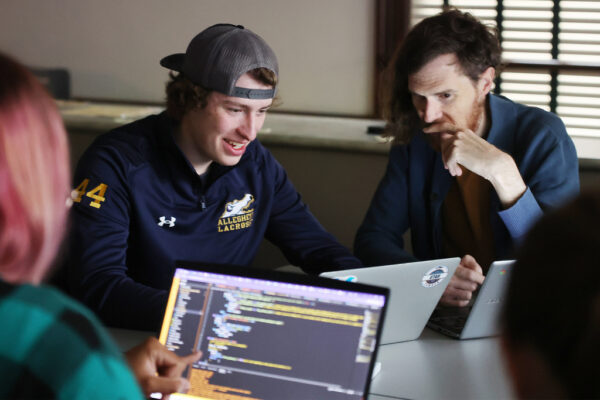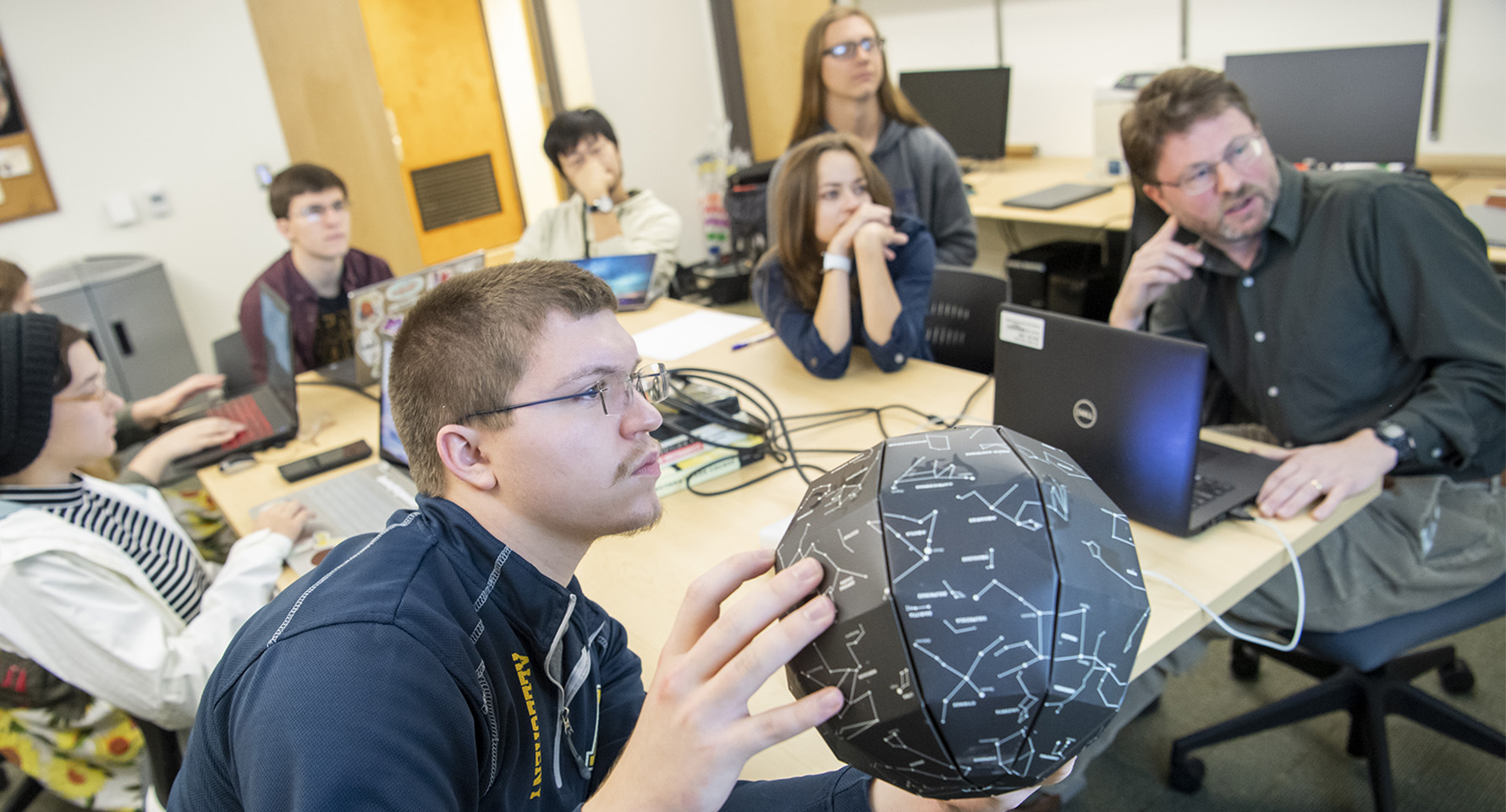
Engineering Physics
Mathematics and Natural Sciences
Why Major in Engineering Physics at Allegheny College
First of all, why Engineering Physics and not just Engineering? The focus of the engineering physics major is different and broader than a straight engineering major. Our program offers a combination of foundational physics knowledge and practical engineering skills, preparing students for careers that require both scientific insight and technical problem-solving. The major is ideal for students who want the flexibility to explore a range of fields, pursue graduate study, or work in industry. This background along with a liberal arts education instills in graduates the creative energy and intellectual rigor that innovative engineers need in today’s world.
The Engineering Physics major is a cutting-edge interdisciplinary program that merges the fundamental principles of physics with practical engineering applications. This major is ideal for students who want to explore the scientific foundations of modern technology while gaining hands-on experience in engineering design, analysis, and problem-solving.
Unusual Combinations
Students often combine Engineering Physics with:
Division
- Mathematics and Natural Sciences
Program Type
- Major
Number of Credits
64 for majorWhere Alumni Work Today
Engineer
NASA Jet Propulsion Laboratory
Molly Shelton ‘16
Manufacturing Project Engineer
Optical Filters USA, LLC
Eliel Cortez ’25
Johns Hopkins University Applied Physics Laboratory maritime navigation systems
Michelle Greiner ‘00
Executive Director
Claire & John Bertucci Nanotechnology Laboratory at Carnegie Mellon University
Matt Moneck ’00
Sensor Integration Engineer
Meta
Mason Greer ’14
Digital Product Manager
PPG
Caitlyn Mahaffey ’11
Quality Planning Lead
Acutec Precision Aerospace Inc.
Wyatt Wright ‘21
Engineering is about solving real-world problems, and those problems we need to solve today are more complex than ever. The world will benefit from continued breakthroughs and development in so many areas, including, energy, green technology, medical research, computing, robotics, and so much more, but solving such complicated problems now requires an interdisciplinary effort involving teams of engineers and scientists from a variety of backgrounds. It is essential for future engineers to understand this interdisciplinary nature of the work ahead.
Your Four-Year Journey
Consisting of 64 credits, the Engineering and Physics major leads to the Bachelor of Science degree.
Year 1: Foundations
Take foundational courses in physics and mathematics. These classes prepare you for all the learning to come.
Year 2: Expanding Skills
Take courses that develop core engineering competencies like experimental skills, written and oral communication, and ethics. These classes will prepare you for your first internship or research experience.
Year 3: Applications
Take courses that give you hands-on experience applying your knowledge to engineering applications. These courses give you the skills and experience necessary for after graduation
Year 4: The Comp
Take courses to solidify your education including your Senior Comp, a significant piece of original work demonstrating your ability to work independently, synthesize information, and write or speak persuasively. In Engineering Physics, the Senior Comp is completed with an industrial partner giving you real world experience that can be transferred to the job market or graduate school.
Research and Internships
- MORE OPPORTUNITIES COMING SOON!
- Recent internships: Optical Filters USA, LLC
- Recent Senior Projects: And Stay Out! Shielding Equipment from Electromagnetic Interference; An Experiment in Engineering Physics
Faculty and Staff
Email: dwilley@allegheny.edu
Phone: 814-332-5368
Associate Professor
Ph.D. M.S., University of Illinois-Champaign; B.S., University of Maryland at Baltimore
Email: apoynor@allegheny.edu
Phone: 814-332-2911
Featured News
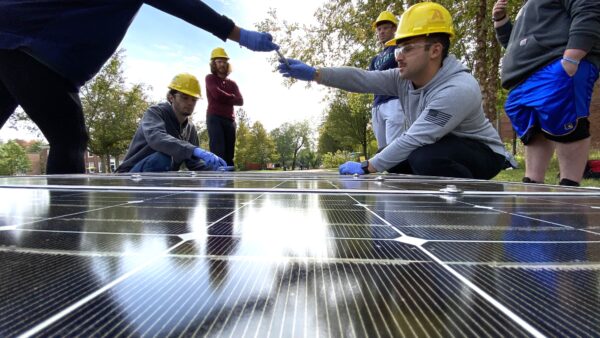
Community-Engaged Courses: Meeting Demands of Students & Employers
Richard Bowden, professor of environmental science and sustainability, discussed integrating collaborative, hands-on learning to meet workforce needs with the Academic Leader. Bowden notes that engaging in community projects allows students to develop agency over their learning in meaningful ways and build transferable skills after graduation.



